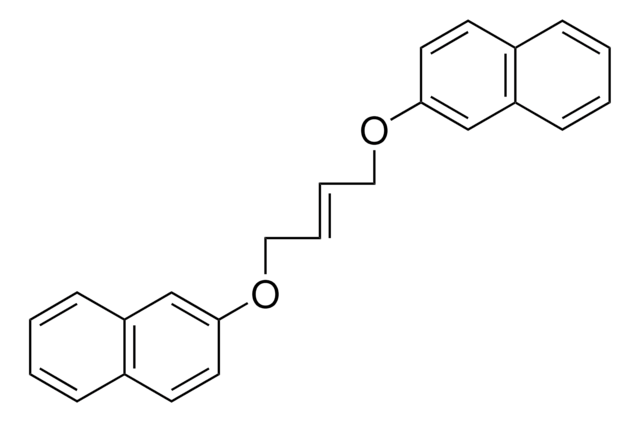251976
2,4-Dichloro-1-naphthol
95%
Synonym(s):
2,4-Dichloro-α-naphthol, 2,4-Dichloro-1-naphthalenol, 2,4-Dichloronaphthol
About This Item
Recommended Products
vapor density
7.3 (vs air)
Quality Level
Assay
95%
form
solid
mp
104-107 °C (lit.)
solubility
pyridine: soluble 5%, clear, colorless to dark yellow
functional group
chloro
SMILES string
Oc1c(Cl)cc(Cl)c2ccccc12
InChI
1S/C10H6Cl2O/c11-8-5-9(12)10(13)7-4-2-1-3-6(7)8/h1-5,13H
InChI key
HVLJEMXDXOTWLV-UHFFFAOYSA-N
Looking for similar products? Visit Product Comparison Guide
Application
- spectrophotometric determination of arginine with previous modifications of the Sakaguchi reaction
- guanidinoacetate and guanidinosuccinate assay of urine, an indicator of kidney dysfunction
Signal Word
Warning
Hazard Statements
Precautionary Statements
Hazard Classifications
Eye Irrit. 2 - Skin Irrit. 2 - STOT SE 3
Target Organs
Respiratory system
Storage Class Code
11 - Combustible Solids
WGK
WGK 3
Flash Point(F)
Not applicable
Flash Point(C)
Not applicable
Personal Protective Equipment
Choose from one of the most recent versions:
Already Own This Product?
Find documentation for the products that you have recently purchased in the Document Library.
Our team of scientists has experience in all areas of research including Life Science, Material Science, Chemical Synthesis, Chromatography, Analytical and many others.
Contact Technical Service









